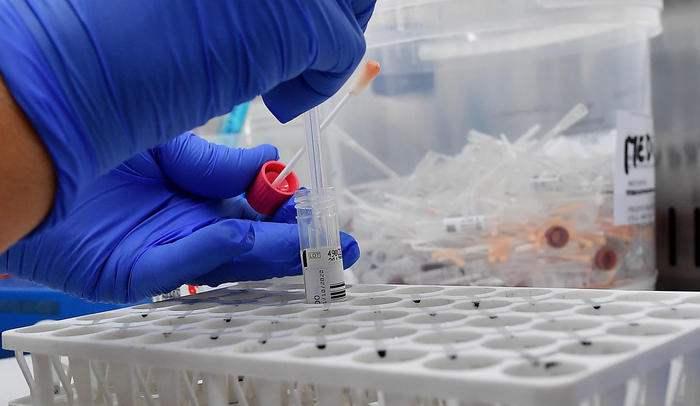From gene therapy to the study of extracellular vesicles as new biomarkers.
From the correction of defects in protein synthesis to the role of glial cells.
These are some of the research areas on ALS (Amyotrophic Lateral Sclerosis) of the 7 winning projects of the Call launched by the AriSLA Foundation for 2021 and financed with 874.950 euros.
The new projects were presented during the 'ANSA Meet' event dedicated to amyotrophic lateral sclerosis and broadcast by ANSA.it.
The meeting was also an opportunity to take stock of the more than 10 years of activity of the AriSLA Foundation, which since 2009 has promoted 14 calls and invested over 14 million euros in research.
In total 92 funded projects, 141 supported researchers, in addition to 230 young researchers supported with scholarships and research grants, and 277 scientific publications dedicated to
In Italy, about 6 thousand people live with ALS.
A recent study shows that the incidence of the disease ranges from 1 to 3 cases per 100,000 inhabitants and that there is a prevalence of 4.9 to 10.5 per 100,000 inhabitants.
The ALS, highlighted the president of the AriSLA Foundation, Mario Melazzini, "is a progressive neurodegenerative disease, highly disabling, complex and complicated to explain".
However, Melazzini highlighted how research in this field is at a turning point: "Answers could soon arrive for the sick. Probably at the beginning only for a small group of patients with forms of the disease linked to specific mutations. and each of them will represent an expected and extraordinary goal ".
Of the same opinion Vincenzo Silani, director of the Neuroscience Laboratory of Irccs Auxologico, Centro Dino Ferrari, of the University of Milan, who spoke of the recognition obtained over time by Italian researchers at an international level. Silani also cited a "planetary work on 30,000 patients", recently published in Nature Genetics, "to which Italy has made a huge contribution", which "has made it possible to identify 7 new genes responsible for sporadic forms of ALS" and who showed "the expression of genes implicated in particular in glutamatergic motor neurons, suggesting that the neurodegenerative process in ALS is originally borne by neuronal cells and not by microglial or astrocytic cells".
Research on the role of neuroinflammation in its propagation is among the new steps forward in the fight against ALS.
To talk about it, to 'ANSA Incontra', Prof. Stanley Appel, director of the Department of Neurology at the Houston Methodist Hospital in Houston and member of the AriSLA Advisory Board, who with his team conducted a study showing how T lymphocytes regulators are able to "induce a slowdown in the progression of the disease, if they are taken from the patient and subsequently bulk, after having been 'corrected' and expanded in the laboratory".
Further studies are underway, but for Appel the signs are "positive".
(HANDLE).

